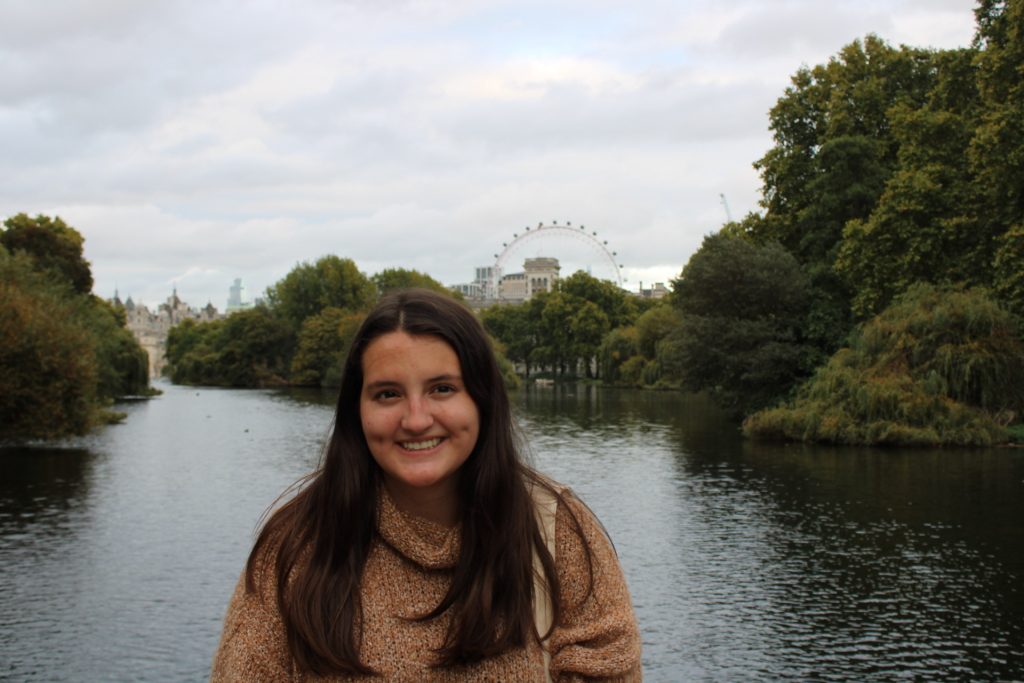Taylor Louise Morrison
434-509-9136 (text or call!)
taylor.morrison2012@gmail.com
taylor.morrison@live.longwood.edu
Categories
- "about me" (0)
- #HookedOnTroutYNP (0)
- #jointhestampedeLU (1)
- #LUBlazin2 (1)
- #prospectus (0)
- #whostheweatYNP (1)
- – "It is during our darkest moments that we must focus to see the light." -Aristotle (1)
- 1.) Find topic (1)
- 2011-2012 (24)
- 2012-2013 (25)
- 2013-2014 (26)
- 2014-2015 (28)
- 2015-2016 (31)
- 2016 election (0)
- 2016-2017 (22)
- 2017-2018 (27)
- 2018-2019 (22)
- 2019-2020 (23)
- 2020-2021 (25)
- 2021-2022 (21)
- 2022-2023 (20)
- about the author (1)
- About Us (10)
- Academic Affairs (14)
- advice (0)
- Alerts (6)
- Alumni Relations (3)
- Analysis (1)
- art (0)
- Articles (3)
- artifacts (0)
- Arts & Entertainment (0)
- Assessment (0)
- Athletics (4)
- Authors (1)
- Barcelona (5)
- Bilbao (4)
- bio (0)
- Biography (5)
- Biological & Environmental Sciences (10)
- blog (0)
- Blog Post (0)
- Blog Posts (1)
- books (1)
- Buzz (4)
- CAFE (2)
- Career Services (9)
- Category: Parents In a Pandemic (1)
- Center for Academic Success (3)
- Chemistry and Physics (9)
- Chinese Dream (1)
- civility (1)
- CLASP (2)
- Classwork (8)
- Clinton (0)
- Closed Positions (245)
- CNN (0)
- College of Business & Economics (0)
- College of Education & Human Services (145)
- College of Graduate & Professional Studies (49)
- Coming of Age (1)
- comm341 (0)
- Communication Sciences & Disorders (115)
- Communication Studies (2)
- Communication Studies & Theatre (5)
- Company news (1)
- Comparative Research (1)
- Computer Science (1)
- Conclusion (0)
- contact savanna (1)
- contemporary-romance (1)
- Cook-Cole College of Arts and Sciences (25)
- Cormier Honors College (4)
- cost (0)
- Counselor Education (50)
- Culture (1)
- D.C. Dispatch (2)
- Daily Highlights (12)
- Dalton Highway (2)
- Darby Italys Adventures (6)
- Databases (1)
- DC (0)
- Dear Reader (1)
- debates2016 (0)
- DEC (10)
- Democracy (0)
- diversity (1)
- Documents (2)
- dystopian/(post)apocalyptic (1)
- Early Childhood Development Initiative (1)
- Educational Leadership (8)
- EH&S (1)
- election (0)
- election2016 (0)
- Elections (0)
- Elementary Education (3)
- Elementary Writing (3)
- English (14)
- English & Modern Languages (27)
- English And Modern Languages (5)
- Enrollment Management (1)
- ePortfolio (1)
- ethical dilemmas (1)
- Event (4)
- Experiences (1)
- Faculty News (1)
- Faculty News Notes (13)
- Fall Semester 2018 (5)
- Fall Semester 2019 (5)
- Farm Blogs (2)
- fashion (0)
- Featured (12)
- find info (1)
- Find Literature on Topic (1)
- Find themes in literature (1)
- Find Topic (1)
- First Year Experience (6)
- Foundation Courses (1)
- Foundation Level Requirements (2)
- Francophonie (1)
- Freshman Year (1)
- Freshman Year 2 (1)
- fun (1)
- Gardiner (8)
- GenED Courses (1)
- General (1)
- General ED Goals (1)
- Genres (5)
- Global Communication (1)
- Goofy (1)
- Graduate Assistantships (49)
- Graduate Spotlight (3)
- Graduate Travel (2)
- Graduate Writing Center (3)
- Granada (36)
- Graphic Design (0)
- Health & Physical Education (17)
- Historical Fiction (1)
- History, Political Science, & Philosophy (3)
- hofdebate16 (0)
- Hofstra Debate (0)
- Hofstra University (0)
- Home (1)
- Honors Courses (0)
- Honors Pillars (1)
- Identity (4)
- Identity Blog (1)
- Impressions (6)
- Infant and Toddler Connection (1)
- Instagram (0)
- International Affairs (5)
- Intro (1)
- introduction (2)
- Introduction to Digital Writing (2)
- Iran (0)
- Islamic Republic (0)
- Jackson (10)
- jill stein (0)
- journal (0)
- journalism (0)
- Latest Update (2)
- learn info (1)
- Levels of Processing Model (1)
- LGBTQ+ community (1)
- Liberal Studies (4)
- Life-STEM (1)
- Longwood LIFE (1)
- Longwood Recovers (1)
- LUVPDebate (3)
- LUYNP (0)
- mainstream (1)
- Math (1)
- Mathematics & Computer Science (10)
- May 2023 (1)
- MBA Program (16)
- Misc (3)
- Miscellaneous (1)
- Movie (1)
- music (8)
- Neurostudies (2)
- New Books (20)
- New CDs, DVDs, & Media (35)
- Nursing (3)
- Office of Diversity & Inclusion (0)
- Office of Fraternity & Sorority Life (2)
- Office of Student Affairs (16)
- Office of Student Research (3)
- Office of Student Success (1)
- On the Campaign Trail (0)
- OPEN positions (96)
- openlearning (3)
- Opportunities (5)
- Oral History Community (2)
- ORC (6)
- organize and summarize info (1)
- OSR Activities (32)
- Past Posts (1)
- Perspective Requirement (1)
- Persuasion Theory (2)
- Photo (0)
- Photo Essay (1)
- photography (2)
- photojournalism (0)
- Photos (1)
- photoshop (0)
- Pillar Courses (4)
- Pillar Requirements (6)
- Places (14)
- plastic planet (1)
- Posts (13)
- Posts For Class (1)
- presidential election (0)
- price (0)
- professional development (0)
- Professional Portfolio (7)
- Professional Studies (13)
- Promotional (1)
- proposal (1)
- Psychology (0)
- Published Posts (4)
- race (0)
- Reading Literacy and Learning (2)
- Reading, Literacy, & Learning (12)
- reflections (6)
- Registrar's Office (3)
- Reminders (1)
- Resume (2)
- Reviews (1)
- Rhetoric (13)
- Rhetorical Criticism (5)
- Santiago de Compostela (4)
- School Librarianship (9)
- Science Fiction (1)
- self care (5)
- Services (6)
- Sevilla (4)
- short-stories/anthologies (1)
- Social Media (2)
- Sociology (1)
- Sociology, Anthropology, & Criminal Justice Studies (2)
- Special Education (1)
- Spring 2017 (1)
- Spring Semester 2019 (6)
- Spring Semester 2020 (6)
- Stewardship (0)
- Strategic Operations (4)
- Student News (2)
- Student Resources (1)
- Student Union (5)
- Study Abroad (4)
- Summer Internship 2016 (0)
- support (0)
- System Alerts (2)
- System Updates (9)
- Table of Contents (1)
- Technology (1)
- theatre (2)
- Travel (1)
- Travel Experiences (1)
- Trump (0)
- Uncategorized (2,349)
- UR Grants (1)
- UR Programs (1)
- USA (0)
- VA Beach (0)
- Valencia (3)
- vermin supreme (0)
- Video Game Essays (1)
- Video Series (4)
- Volume 8 (29)
- voter (0)
- Voting (0)
- VSRA (12)
- Washington DC (0)
- welcome (0)
- What's New (55)
- Year In Review (1)
- Yearly Updates (1)
Sitewide Tags
- 2011-2012
- 2012-2013
- 2013-2014
- 2014-2015
- 2015-2016
- 2016-2017
- 2017-2018
- 2018-2019
- 2019-2020
- Academic Affairs
- Audrey Church
- CBE
- CCCAS
- CEHS
- CGPS
- COUN
- CSD
- DEC
- Elif Guler
- English
- full-time
- graduate
- HPE
- MBA
- onthecampaigntrail
- part-time
- progress
- rhetoric
- SHAV
- SHAV2016
- SHAV2017
- SHAV Conference
- SLIB
- speechlanguagepathology
- student affairs
- travel
- tutorials
- VAASL
- VAASL2016
- VAASL 2016 Conference
- VAASL 2018
- VAASL Conference
- VSCA
- VSCA 2018
- VSRA
Archives
- November 2025
- October 2025
- September 2025
- August 2025
- July 2025
- June 2025
- May 2025
- April 2025
- March 2025
- February 2025
- January 2025
- December 2024
- November 2024
- October 2024
- September 2024
- August 2024
- July 2024
- June 2024
- May 2024
- April 2024
- March 2024
- February 2024
- January 2024
- December 2023
- November 2023
- October 2023
- September 2023
- August 2023
- July 2023
- June 2023
- May 2023
- April 2023
- March 2023
- February 2023
- January 2023
- December 2022
- November 2022
- October 2022
- September 2022
- August 2022
- July 2022
- June 2022
- May 2022
- April 2022
- March 2022
- February 2022
- January 2022
- December 2021
- November 2021
- October 2021
- September 2021
- August 2021
- July 2021
- June 2021
- May 2021
- April 2021
- March 2021
- February 2021
- January 2021
- December 2020
- November 2020
- October 2020
- September 2020
- August 2020
- July 2020
- June 2020
- May 2020
- April 2020
- March 2020
- February 2020
- January 2020
- December 2019
- November 2019
- October 2019
- September 2019
- August 2019
- July 2019
- June 2019
- May 2019
- April 2019
- March 2019
- February 2019
- January 2019
- December 2018
- November 2018
- October 2018
- September 2018
- August 2018
- July 2018
- June 2018
- May 2018
- April 2018
- March 2018
- February 2018
- January 2018
- December 2017
- November 2017
- October 2017
- September 2017
- August 2017
- July 2017
- June 2017
- May 2017
- April 2017
- March 2017
- February 2017
- January 2017
- December 2016
- November 2016
- October 2016
- September 2016
- August 2016
- July 2016
- June 2016
- May 2016
- April 2016
- March 2016
- February 2016
- December 2015
- November 2015
- August 2015
- April 2015
- March 2015
- February 2015
- August 2014
- May 2014
- January 2014
- September 2013
- August 2013
- April 2013
- March 2013
- December 2012
- November 2012
- June 2012
- May 2012
- March 2012
- January 2012
- November 2011
- October 2011
- September 2011
- July 2011
- May 2011
- April 2011
- March 2011
- February 2011
- January 2011
- December 2010
- October 2010
- August 2009
Meta



